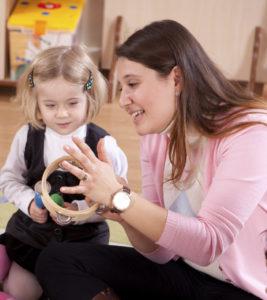Written by Morgan Ann Minyard, LPMT, MT-BC, Music Therapist at Metro Music Makers

What is a learning disability?
According to the Learning Disability Association of America, learning disabilities are characterized as neurologically-based processing disorders. In other words, these disabilities can hinder a child’s ability to accurately and efficiently learn reading, writing or math skills. On a higher level, children with learning disabilities may have difficulty with abstract concepts, time management skills, organization and focus/attention.
What are different learning disabilities?
Each learning disability is unique and refers to specific challenges that a child may face in school and at home. Despite these disorders, however, a child or adolescent with learning disabilities can achieve success in all aspects of life. There are specific disorders under the umbrella of learning disabilities, and a few are listed below:
- Auditory Processing Disorder
- Dysgraphia
- Dyslexia
- Dyscalculia
- Language Processing Disorder
- Visual Perceptual/Motor Deficit
- Nonverbal Learning Disabilities
How can a learning disability affect a music lesson?
The learning disabilities listed above, among others, may alter a student’s ability to apply conceptual skills in order to learn music effectively. For example, a piano student that has visual perceptual/motor deficits may have difficulty reading the notes on a staff, understanding the differences in shapes, or hand/eye coordination, thus making it difficult to read music while playing piano simultaneously.
What are the first steps to take toward meeting my students’ needs?
If you’re a music teacher and have higher functioning students with learning disabilities, there are several ways to adjust and adapt your lesson plan to aid their growth and development. As stated above for a student with perceptual/motor deficits, one might simplify notes from a piano book to make it easier to read, or incorporate music activities to help with hand/eye coordination (such as drumming while reading rhythms). Again, all of these adaptations are specific to the individual child and his or her needs.
What if I’m spending the entire lesson adapting?
Having a knowledge of common learning disabilities, as well as knowing the details of your students’ challenges and needs can definitely help music educators teach higher functioning students in a fun and effective manner! However, if a student has a lower functioning diagnosis or disorder, and the adaptation feels outside of your scope of practice, they should be referred to a music therapist that is qualified to teach adaptive lessons and provide music therapy, if that is what the child may need.
For more information, call us today at 678-637-7293 or email Sara Longwell, our Director of Music Therapy, directly at saramt@metromusicmakers.com.
